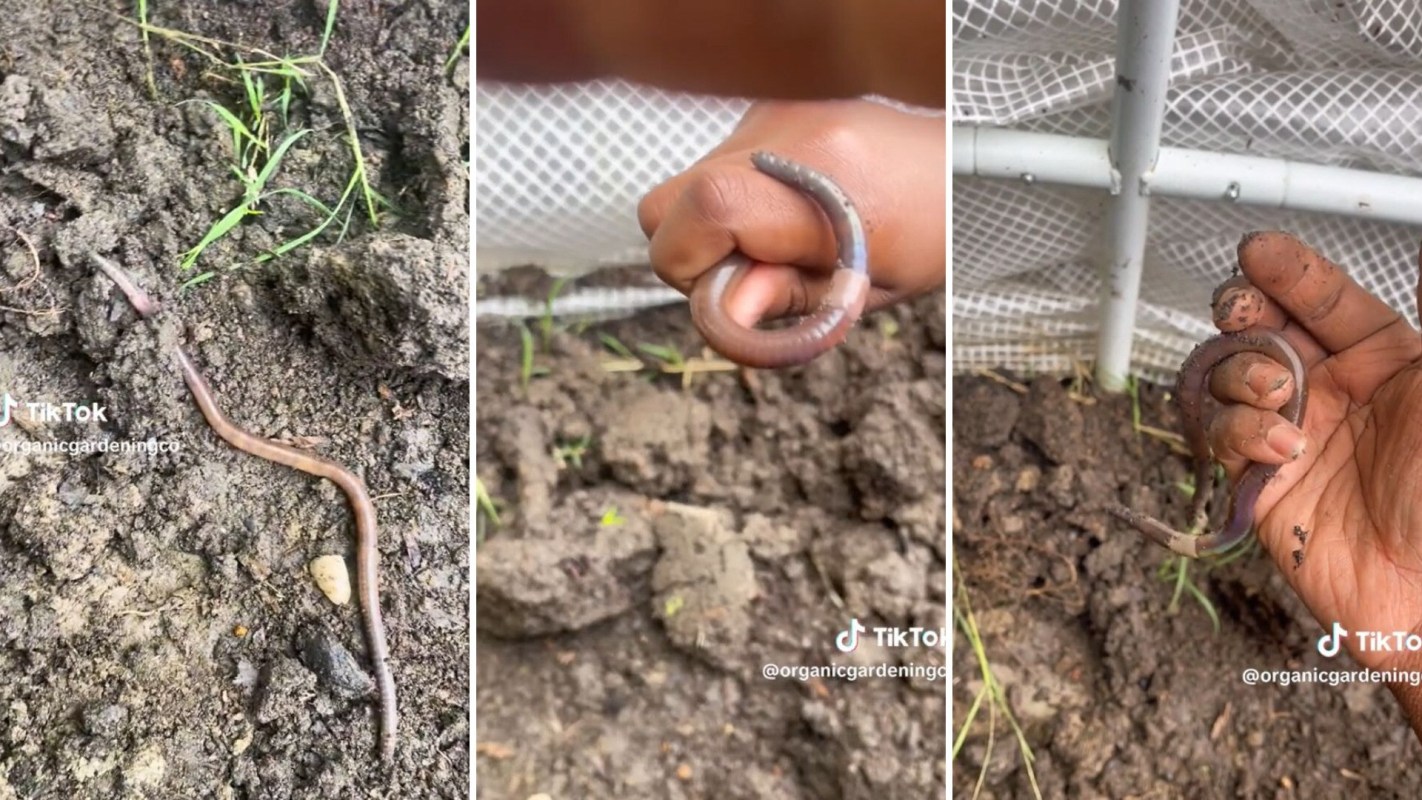A recent TikTok video is gaining likes and causing some squirming. The topic? Worms. Specifically, the Asian jumping worm.
In a video by Organic Gardening Companion (@organicgardeningco), the user holds a worm and states, "If you see [these], get rid of them."
The Asian jumping worm is an invasive species found in the Northeast, mid-Atlantic, and Midwest regions of the United States, and its introduction has caused major environmental harm. The worm, named for its thrashing movement and ability to flip off the ground, is "horrible for your garden," according to the video.
So what's the problem? All that movement takes a lot of energy, and fueling that energy takes a lot of food — the same food many native species need to survive. While the worm may be more of a pest than a problem in small numbers, large numbers can rob the soil of nutrients, but the real issue is spread.
Because they live in the soil, the spread can happen whenever the soil is moved, meaning they can be spread in mulch, potting soil, leaves, and even the treads of shoes. Once they get from gardens to forests, the problem becomes much bigger.
Once there, the worms feast on fallen leaves that compose the top layer of forest soil, or the "litter layer." Removing this layer changes soil properties and diminishes food sources for native species.
@organicgardeningco Asian Jumping Worms are harmful to your garden. When I find them I feed them to my chickens. They rob the soil of nutrients. These are not garden friends! #gardening#organicgarden#organicgardener#worm#worms#gardenpests#gardenpest#growfood#homegrown#blackgardenerstiktok#blackgardener#growyourownfood ♬ original sound - Organic Gardening Companion
Saving your garden and stopping the reach of the worms' damage is easy and can be done by locating them and regulating how you dispose of them. If you know they've been found in a certain area, don't move soil or plant debris from that area to another.
One user commented on the video, saying, "Saw this video a couple days ago, and low n behold .. found in my garden under some mulch bags."
Another said, "I saw those all the time when I was a kid in my backyard. That might be why our flowers kept dying so quickly when we did everything else right."
Join our free newsletter for easy tips to save more, waste less, and help yourself while helping the planet.









